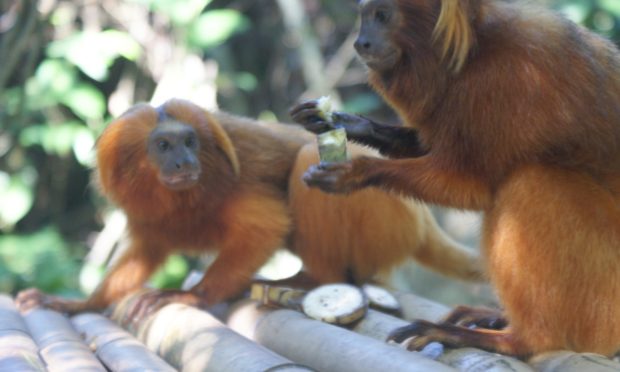The sharing of food between primates may aid monkey business, new research has found.
A St Andrews University expert has discovered monkeys sharing food in the wild could be the equivalent of humans taking a date out to dinner.
While mothers give food to their offspring, adult monkeys rarely share.
Lead researcher Camille Troisi now believes some species may do so in the hunt for potential mates.
Ms Troisi, of the university’s Centre for Social Learning and Cognitive Evolution, has reported six recorded events of food transfers between adult golden lion tamarins in different groups.
She said this suggested the species had a more complex and flexible social life than previously thought.
“Given that individuals emigrate from their natal group to find opportunities to reproduce, I suggest that those food transfers could be a way for individuals to estimate the quality or availability of potential mates or social partners.
“Although the function of food transfers between groups is not fully understood and requires more experimental work, the six observations reported here contribute to our understanding of the flexibility of social behaviour in primates.”
Golden lion tamarins are unique in terms of the large number of food transfers to young monkeys as well as the prevalence of sharing among adults.
The type of food shared, especially with pregnant females, is also unusual.
Ms Troisi said those food transfers can provide nutrition and information about what foods are good to eat.
“Previously, providing nutrition and information had been regarded as the two main functions of food transfers in tamarins,” she said.
“However, these new observations suggest there may be a third one – to create social connections.”
Until now, all sharing of food between primates had been observed between individuals of the same group, expect for bonobos where researchers recently saw an individual sharing with members of a neighbouring community.










